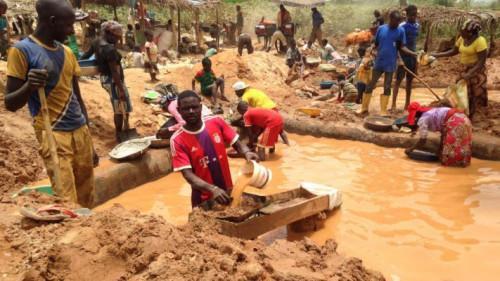Mining Other

Cameroon Urged to Modernize Mineral Data to Unlock Mining Revenues

A recent assessment of sustainable mineral resource management in Cameroon reveals that the country's mining potential is largely underexploited. This study aimed to align Cameroon with the Africa Mining Vision. To reach its conclusions, the study identified six key pillars related to Cameroon's mining landscape, including "geological and mineral information."
The study, commissioned by the African Minerals Development Centre of the African Union and funded by the European Union Technical Assistance Facility (EU-TAF) and AfCFTA instruments, found that Cameroon has a Geological and Mineral Information System with data spanning from 1929 to the present. The country also employs modern technologies such as airborne surveys. However, the study highlighted a lack of dedicated funding for geological mapping and insufficient data standardization. Information is not consistently shared according to uniform technical standards, affecting both its reliability and accessibility. Additionally, there is no integrated strategy for collecting and managing this information.
These weaknesses lead to a lack of transparency in allocating licenses and disclosing contracts, which in turn impacts Cameroon's mining sector statistics. According to the study, the mining sector contributes approximately 0.63% to the Gross Domestic Product (GDP) and accounts for about 5% of exports. Its contribution to the national budget is less than 0.2%.
To date, the government has issued 122 industrial mining permits, compared to over 1,000 permits for artisanal and small-scale mining operations. The mining royalty rate is capped at 25%, while artisanal gold mining accounts for 95% of the country's total gold production.
In addition, the recent report from Cameroon's Extractive Industries Transparency Initiative (EITI) reveals that in 2023, the National Mining Company (Sonamines) transferred 170.9 kg of gold to the Ministry of Finance. This represented a value of 5 billion CFA francs under the synthetic mining tax regime. An official from the Ministry of Mines added that during 2023 and the first half of 2024, Sonamines transferred a total of 420 kg of gold.
Broader Shortcomings and Recommendations
Other pillars identified in the study include a weak institutional and legal framework, a tax regime lacking transparency, the absence of a value chain, and insufficient budget allocation for environmental monitoring.
According to the study, these shortcomings result in limited transparency in granting licenses and disclosing contracts, disparities in revenue collection, environmental degradation due to insufficient regulation and enforcement, high informality, and weak traceability in artisanal and small-scale mining.
The assessment does acknowledge some progress in Cameroon, particularly in strengthening the legal framework. However, it recommends that the country more effectively combat corruption in the sector and demonstrate greater transparency for the mining sector to genuinely contribute to national development.












